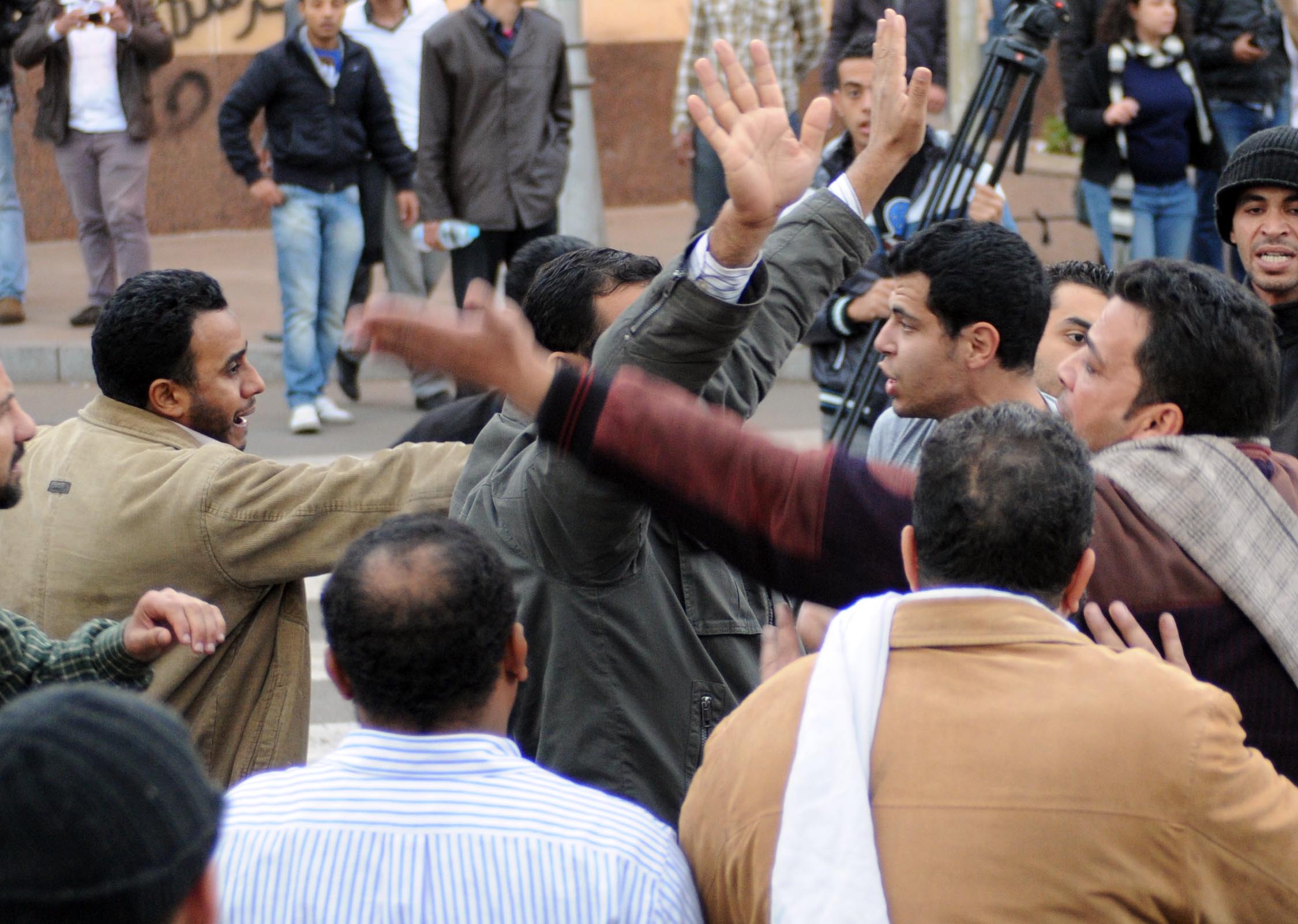
AFP – Hundreds of men and women marched for “freedom” in the Sudanese capital on Friday despite the deployment of militia, troops and riot police, AFP correspondents reported.
One of the largest rallies was staged in the poor Shambat area of North Khartoum, where several hundred residents marched along the dirt roads between their houses.
They tried to make their way to a large lot but were blocked by uniformed security officers armed with rifles.
“A million martyrs for a new dawn,” they called.
“Freedom! Freedom! Justice! Justice!”
They chanted: “The people want the fall of the regime,” the rallying cry of the 2011 Arab Spring revolts which toppled longtime rulers around the region.
Elsewhere, hundreds demonstrated outside a state security service detention facility, a United Nations source said, adding there had been a number of other peaceful demonstrations.
The protests followed the main weekly Muslim prayers and came in spite of the roundup of hundreds of people after deadly demonstrations last week.
In the Red Sea town of Port Sudan, about 100 people gathered silently in front of the local security service headquarters to seek the release of detainees, witnesses said.
The group later peacefully dispersed.
Authorities say 34 people died after petrol and diesel prices jumped on September 23 when the government cut fuel subsidies, sending thousands into the streets in the worst urban unrest of President Omar al-Bashir’s 24-year rule.
Amnesty International says security forces are believed to have killed more than 200 protesters, many with gunshot wounds to the head and chest.
The government said it had to intervene when crowds turned violent, attacking petrol stations and police facilities.
The intensity of protests has decreased markedly this week.
In the Wad Nubawi neighbourhood of Khartoum’s twin city Omdurman on Friday, an AFP reporter saw about 10 pickup trucks carrying uniformed militiamen.
One held a gun but most of the men in the back of the light-green and brown vehicles appeared to be armed only with sticks.
Some wore balaclavas over their faces, while others had white headbands.
Parts of the street were blackened from a fire lit during last week’s demonstrations, and a burned-out car sat beside the road.
Riot police trucks were on standby behind the city’s most expensive private hospital, in the Burri district, as up to 100 people rallied outside the home of Salah Sanhouri, a 28-year-old pharmacist gunned down during a protest last week.
“They are surrounded by state security agents,” a witness said.
However, an AFP correspondent who toured several other parts of the Khartoum area found life carrying on as normal.
Roadside vendors were selling watermelons, football matches were being played, and people gathered along the banks of the Blue Nile.
On Thursday, independent expert Mashood Adebayo Baderin, who is tasked by the UN Human Rights Council with monitoring Sudan, called for “prompt, thorough and impartial investigations” into allegations of the use of excessive force against demonstrators.
He urged Khartoum to charge all those arrested with a recognisable offence or immediately release them.
The government says it arrested about 700 “criminals” after last week’s protests.
But Amnesty said the real figure appeared to be much higher, with indications “that people are being targeted for arrest for no other reason than they are members of opposition groups, or activists, lawfully exercising their rights to freedom of expression and assembly.”



